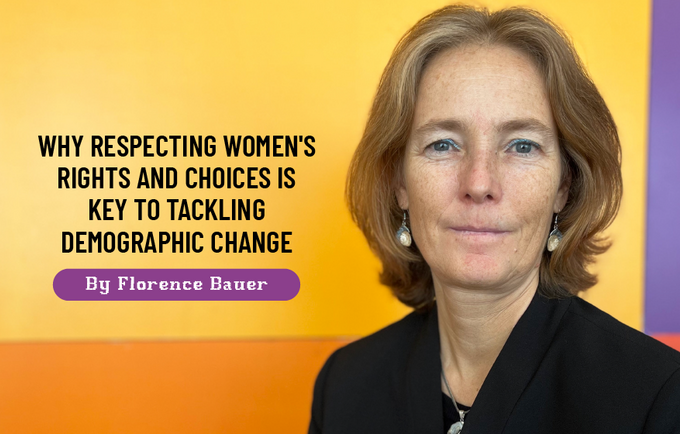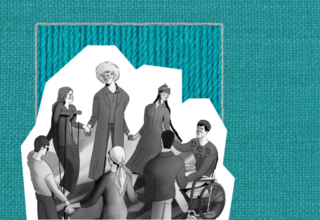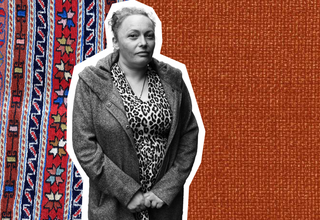A new report published by UNFPA, the United Nations Population Fund, warns that persistent inequalities in society hold back development – and, as UNFPA Regional Director Florence Bauer argues, make it harder for countries in Eastern Europe to manage demographic change.
Some people think the way to fix low birthrates in Eastern Europe is to pressure women into having more babies. Governments offer financial incentives or even try to limit women's choices over their own bodies.
But there is no evidence that such measures create a lasting increase in birthrates. Instead, limiting women's rights risks reversing decades of progress towards gender equality and can have severe consequences:
Damaged lives: When women's choices are restricted, their well-being is diminished and their potential is stifled. Unintended pregnancies can derail education and careers. Lack of bodily autonomy can trap women in cycles of poverty and dependence, often accompanied by domestic violence. When women have control over their bodies and can access contraception, they can plan their families and choose to have children at the right point in their lives.
Economic harm: Countries grappling with population decline cannot afford to shut out half their population. To build resilient economies and societies, they need the full contributions of all their citizens. Empowering women and girls makes economic sense: it boosts productivity, innovation, and overall well-being.
In 1994, at the International Conference on Population and Development in Cairo, the international community made a landmark commitment to uphold the sexual and reproductive rights of all people. Today, thirty years later, UNFPA’s State of World Population report shows that a lot of progress has been made but also highlights the deep inequalities that still persist.
The data is striking. One in four women, in countries where we have data, lack basic bodily autonomy – the right to decide about their own healthcare, contraception, and if or when to have sex. More than two in three women in Eastern and Southeastern Europe have experienced some form of gender-based violence, often at the hands of a partner or someone else in the family. Millions of women want to use modern contraceptives but cannot access family planning supplies, information and services.
Discrimination is most severe for women already facing various, often overlapping, disadvantages. In Albania, for example, the only country in the region with solid international health care data over time, a 2017 survey found that 74 per cent of Roma women reported serious difficulties accessing health care, compared to only 35 per cent of ethnic Albanian women. While healthcare access improved over the previous decade for both groups, the gains were much slower for the most disadvantaged.
These disparities represent individual tragedies, but they also inflict broader damage. When women are denied their essential healthcare, their families and communities suffer. When structural barriers or social stigma prevent women from reaching their potential, entire economies lose out.
Countries facing demographic change need forward-thinking policies that invest in women and girls. This means ensuring universal access to education, quality healthcare, economic opportunities, and protections against gender-based violence. It also means respecting women's fundamental right to control their own bodies and make decisions about their lives.
The path to healthy, prosperous societies isn't through controlling women's bodies. It lies in dismantling the barriers that prevent women and girls from thriving – for their own sake, and for the well-being of their communities and nations.
For more information on progress and challenges in the Eastern Europe and Central Asia region, visit the regional State of World Population highlights page.




